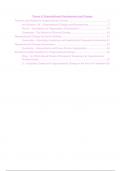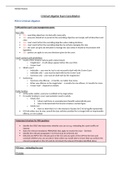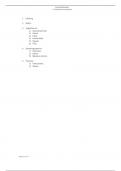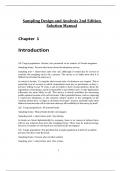Samenvatting
Summary for Theme 2
This summary offers detailed explanations for nearly every article and book chapter covered in the 2024 course. It is elaborate, but delivers the main points of each section concisely, providing a clear and comprehensive overview. Each summary includes a table on the first page to show which articl...
[Meer zien]







